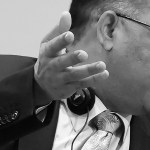TREND-SPOTTING
Where the world is headed in 2022

As the climate crisis takes hold, the politics of scarcity and abundance will accelerate, pitting the many against the fortunate few. We are adapting to avalanches of rapid change. Knowing that another world is possible, we are being called to unfold new collective paradigms.
The overarching theme we can expect for 2022 is a conflict between the ideas of digital abundance and the reality of real scarcity.
Artificial scarcity and real wealth from the unreal economy
This year saw the unreal economy go mainstream, from NFTs (non-fungible tokens) to play-to-earn gaming economies. By creating artificial scarcity through code, gamers and traders from all over the world – including emerging markets – are taking advantage of the decentralised economy to collect real wealth from virtual goods and services.
Looking ahead, we can see the unreal economy imitating the “real” one, as DeFi (decentralised finance) begins to dabble in its own version of collateralised debt obligations – and all the leverage risks that come with that.
Reality privilege
“Reality privilege” refers to how the metaverse promises disadvantaged people a better quality of (albeit) artificial life online than they can hope for in the physical realm.
A photograph shared on Twitter by co-founder and CEO of OpenAI Sam Altman depicting a homeless man wearing a virtual reality headset vividly illustrates this possible future. Does the future of reality belong to the rich, while the poor will be asked to accept a more digital substitute?
Essential and inessential workers inflection point
In another plot twist, the global labour market is beginning to realise the value of essential workers and physical labour – as well as the expendability of interchangeable knowledge workers in a globalised, digitised economy. In the future, global “Zoom workers” will have to compete at a global scale, while truck drivers and farm workers find themselves with massive bargaining power in developed nations. Could these trends trickle down to throw a lifeline to South African workers?
Count your carbons
As the climate crisis takes centre stage, India is considering instituting a “climate lockdown” to cope with air pollution. Countries and companies alike are looking for ways to get consumers to account for their own carbon footprints. Employees are being encouraged to use personal carbon calculators and European think-tanks are proposing that nations adapt Covid-19 passport systems to track and trace (and possibly ration) personal carbon emissions.
South Africa should take note, especially regarding the impact that “carbon consciousness” will have on post-Covid tourism.
Cricket or soy this Christmas?
As post money-printing inflation kicks in, consumers can expect to pay more for just about everything. One of the ways being touted to combat both rising prices and rising temperatures is to switch to cheaper and more planet-friendly vegetarian options, or to consider insects as a source of protein.
Insect farming for human and livestock consumption is set to be one of the more interesting growth industries ahead.
What all the forecasts for the year ahead have in common is an undercurrent of inequality as both scarcity – of real resources such as water, electricity, food and jobs – for the many and abundance – for the few newly minted NFT millionaires – are set to accelerate into the new year and beyond.
Joyful cities
From the Cape of Good Hope to the Northern Metropolis, injecting joy into grey city spaces is an essential ingredient for flourishing communities and culture.
Yinka Ilori, a London-based artist of British-Nigerian heritage, tells stories inspired by Nigerian parables. Recently awarded Time Out London’s “Social Saviour” award, his playscapes, basketball courts and skate parks are vibrant places of joy found in London, America’s East Coast and France.
Sparking equal amounts of joy close to home is the remarkable revival of The Princess Vlei biosphere and community in the Cape Flats. yinkailori.com, princessvlei.org
The essence of life
Water in a water-scarce country is an existential challenge. How do we tackle it?
For Water For Life is a podcast series that highlights the value and scarcity of water in southern Africa by telling the extraordinary stories of people who have made it their mission to preserve, purify and replenish South Africa’s water sources. From indigenous knowledge to cutting-edge science, each episode reveals the challenges and insights of geologists, healers, innovators, farmers, organisers and activists as they listen to the water.
‘Fungible’ universe
Immersing ourselves in digital realities has never been easier and more far-reaching.
Metaverse and non-fungible token (NFT) marketplaces open gateways for African art, music and multimedia storytelling to exist as digital assets and virtual reality/augmented reality experiences, with creators collecting an infinite timeline of royalties from every sale during the lifetime of this asset.
QkweQkwe, the first NFT marketplace for contemporary African art, will be launching soon.
Soma living
Somatic practices are a way of listening and sensing the intelligence, memories, stories and histories that exist in our bodies. They use movement and bodywork to shift old patterns while expanding internal perceptions, bringing new awareness and possibility. In this process we develop new skills and competencies aligned with our heartfelt values and furthermore, grow them into authentic expressions and future habits.
Somatic practices include free-form dance, Pilates, aikido, Hakomi, body-mind centring, Alexander technique, Laban movement and many more.
Kin of nature
Nature-based learning, or learning through exposure to nature and nature-based activities, stimulates our creativity and helps us understand the limits and abundance of planet Earth while showing us the pivotal roles we can play in reimagining our overconsumption-driven economies.
Leaning into nature-inspired education opens pathways for us to vision lifestyles and economies in reciprocity with nature.
Some of our gateways are open-source learning platforms, digital magazines, podcasts and experiential gatherings.
Visit Emergence Magazine, Slow Factory, Big Circle and Veld and Sea. DM168
Bronwyn Williams is a futurist, economist and business trends analyst. Annegret Affolderbach is a cultural futurist and experiential designer.
This story first appeared in our weekly Daily Maverick 168 newspaper which is available for R25 at Pick n Pay, Exclusive Books and airport bookstores. For your nearest stockist, please click here.





















Great article. It brings to mind Chief Sittingbull (?) who warned that humans cannot eat money.